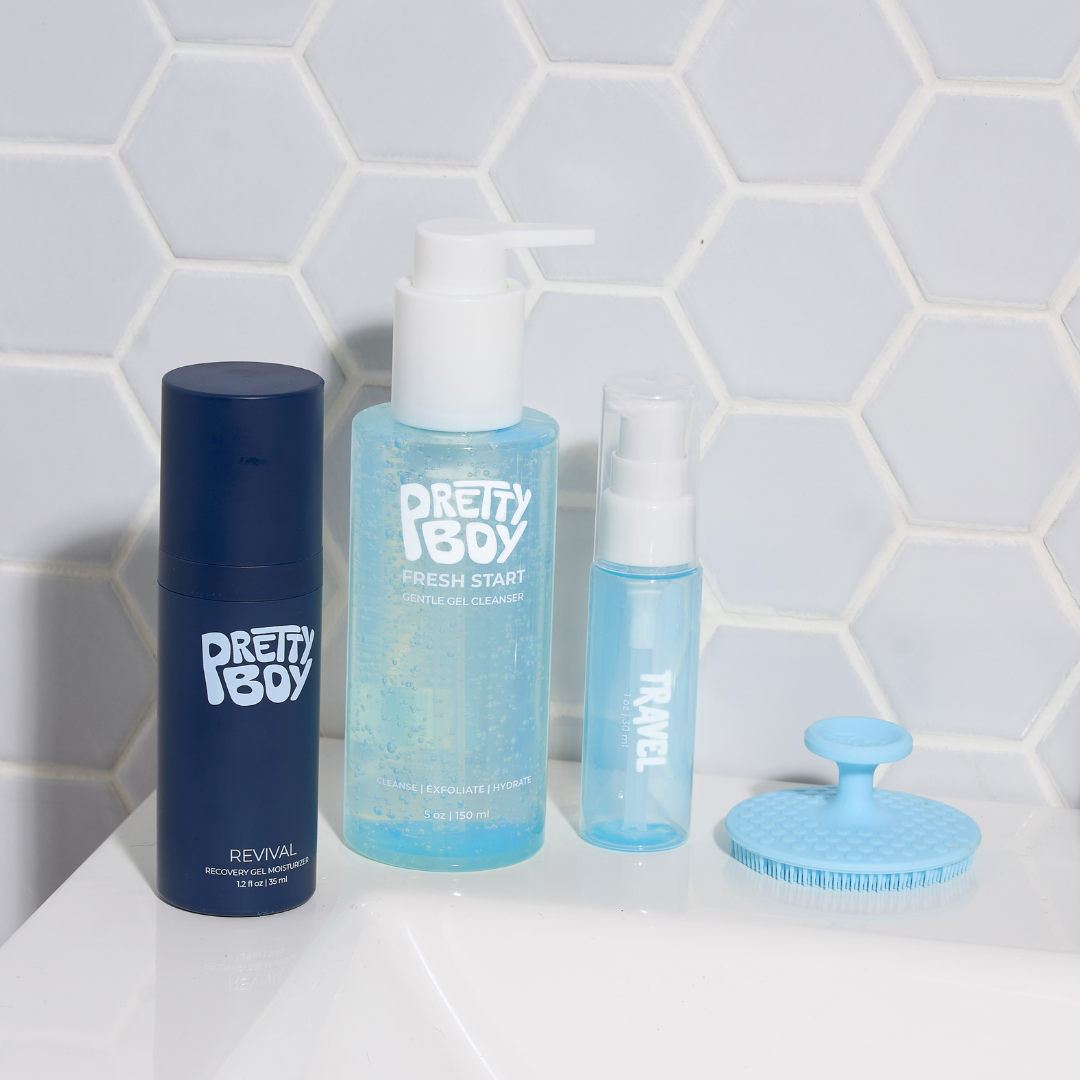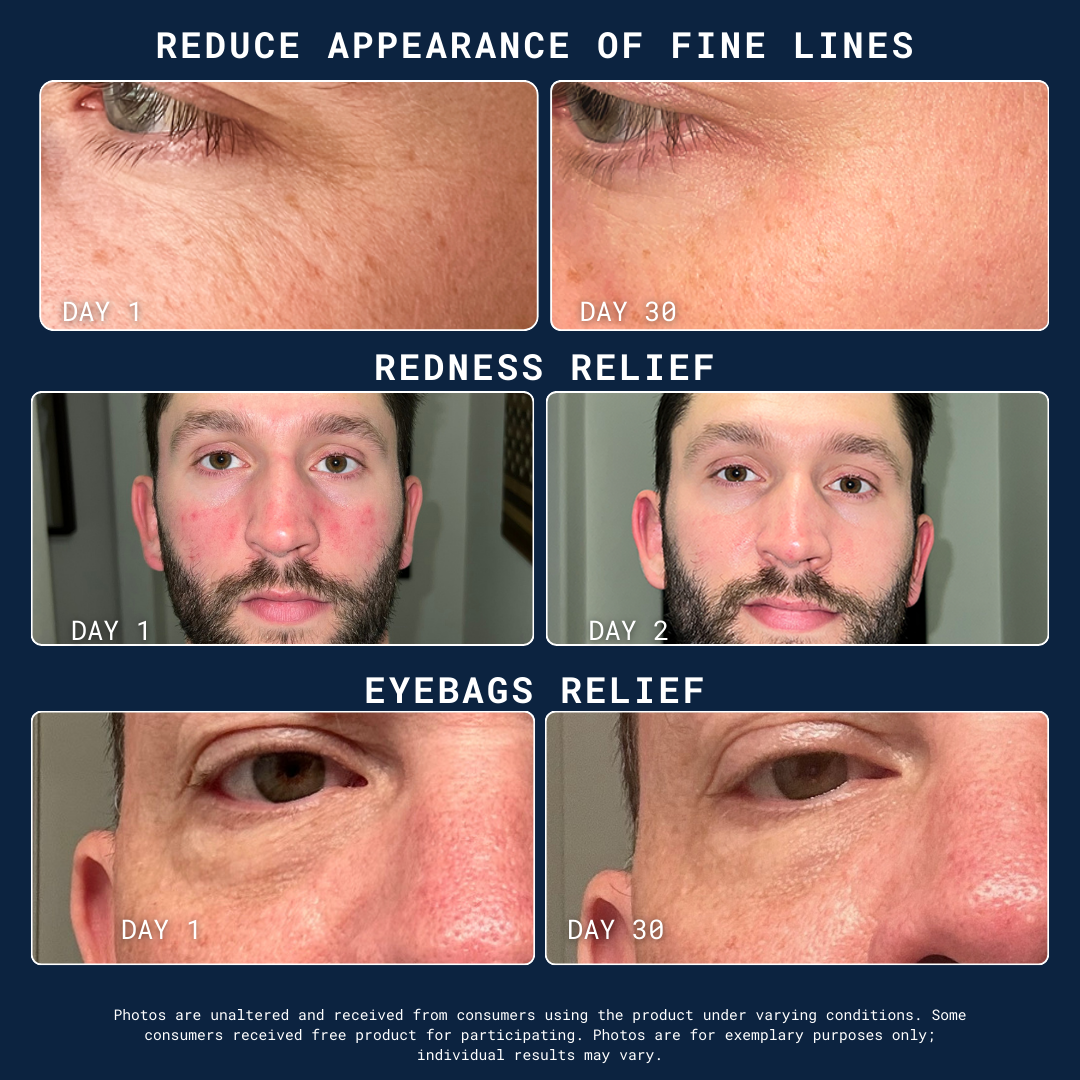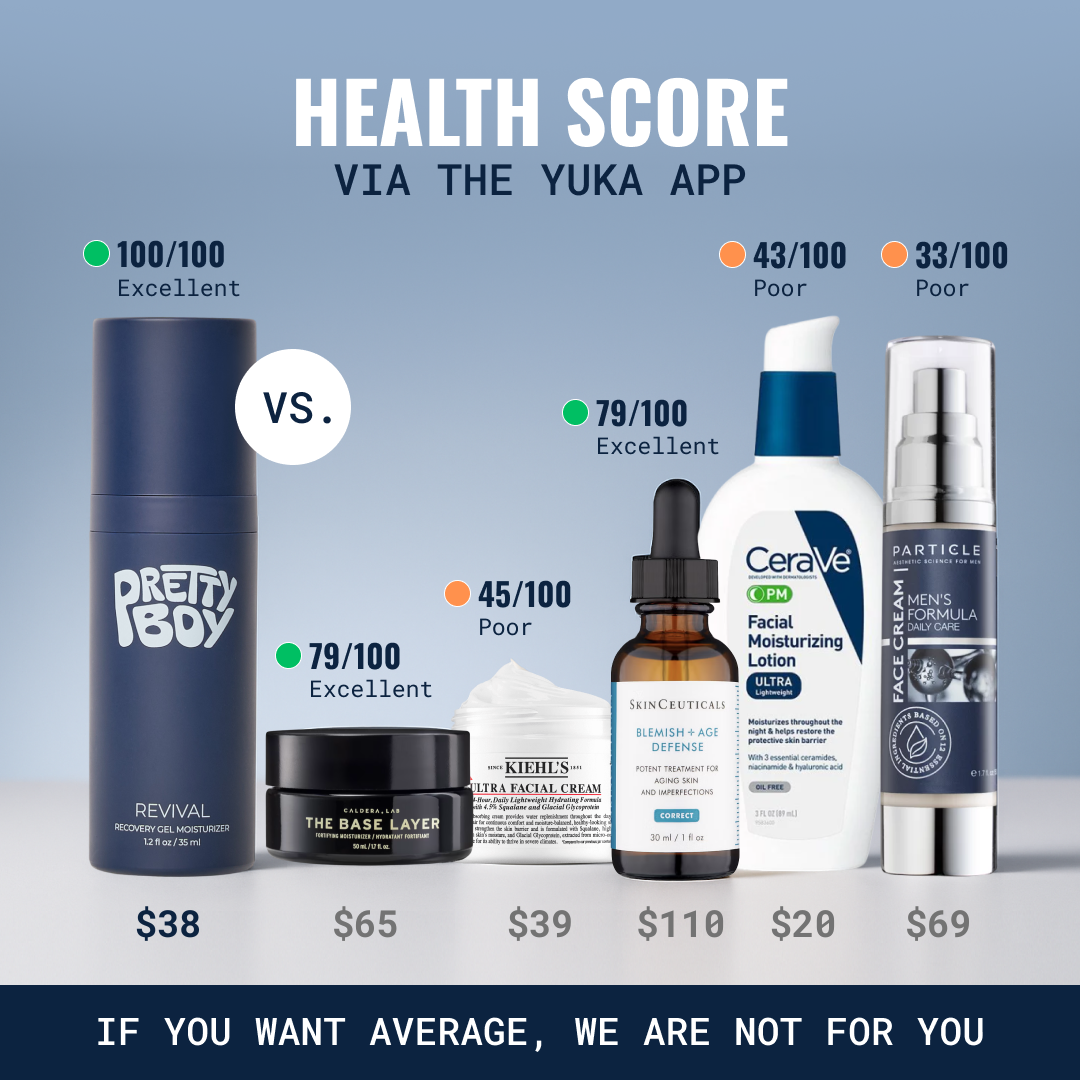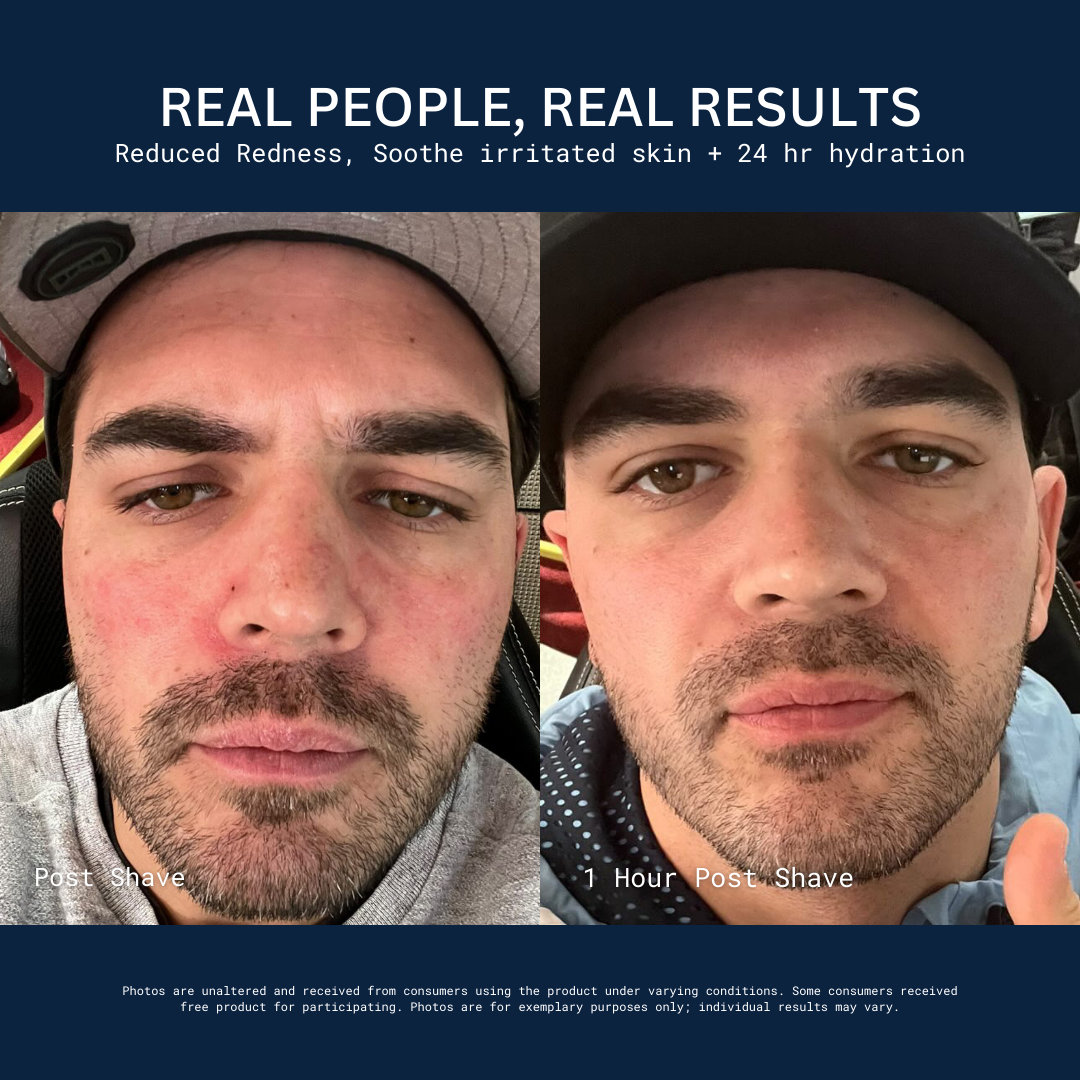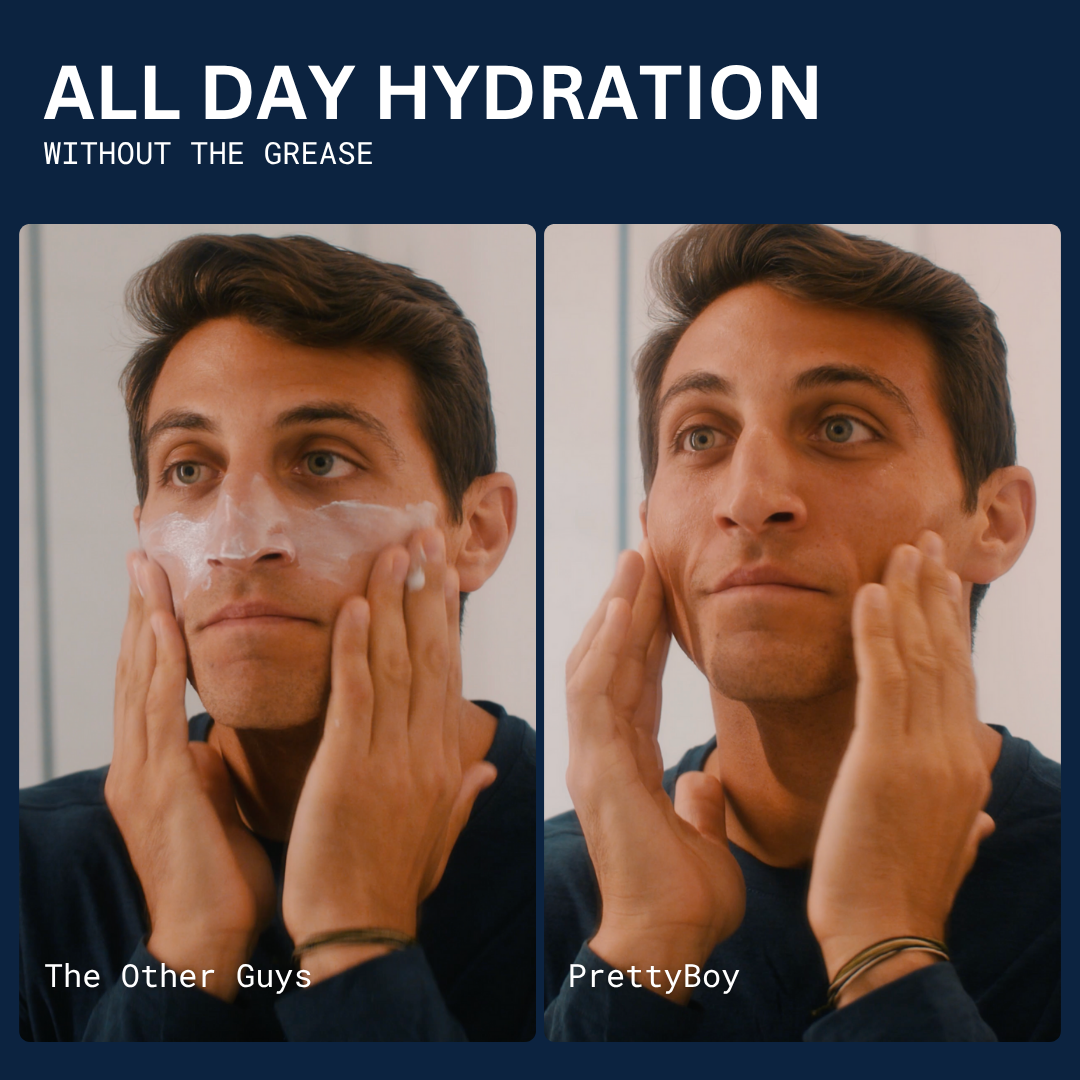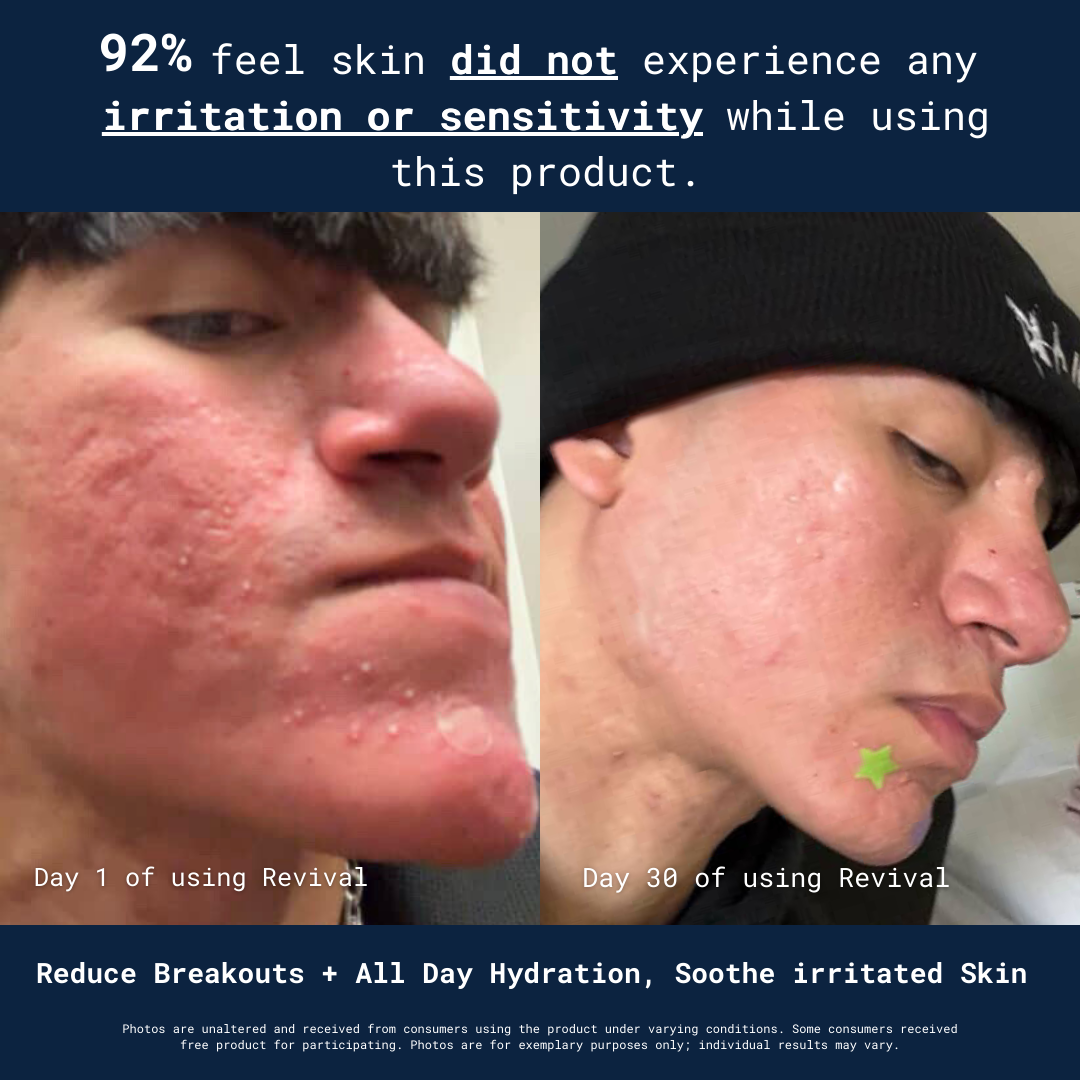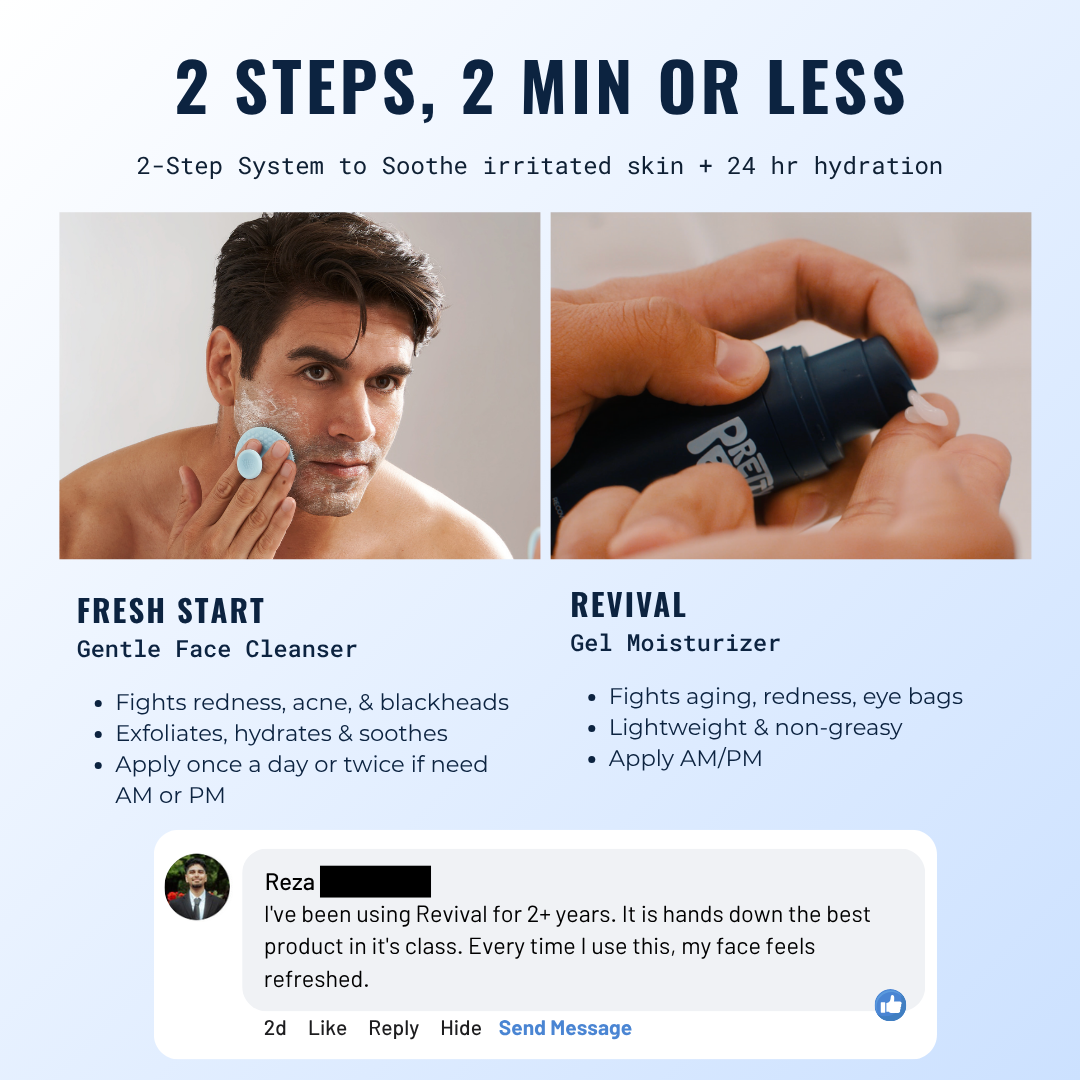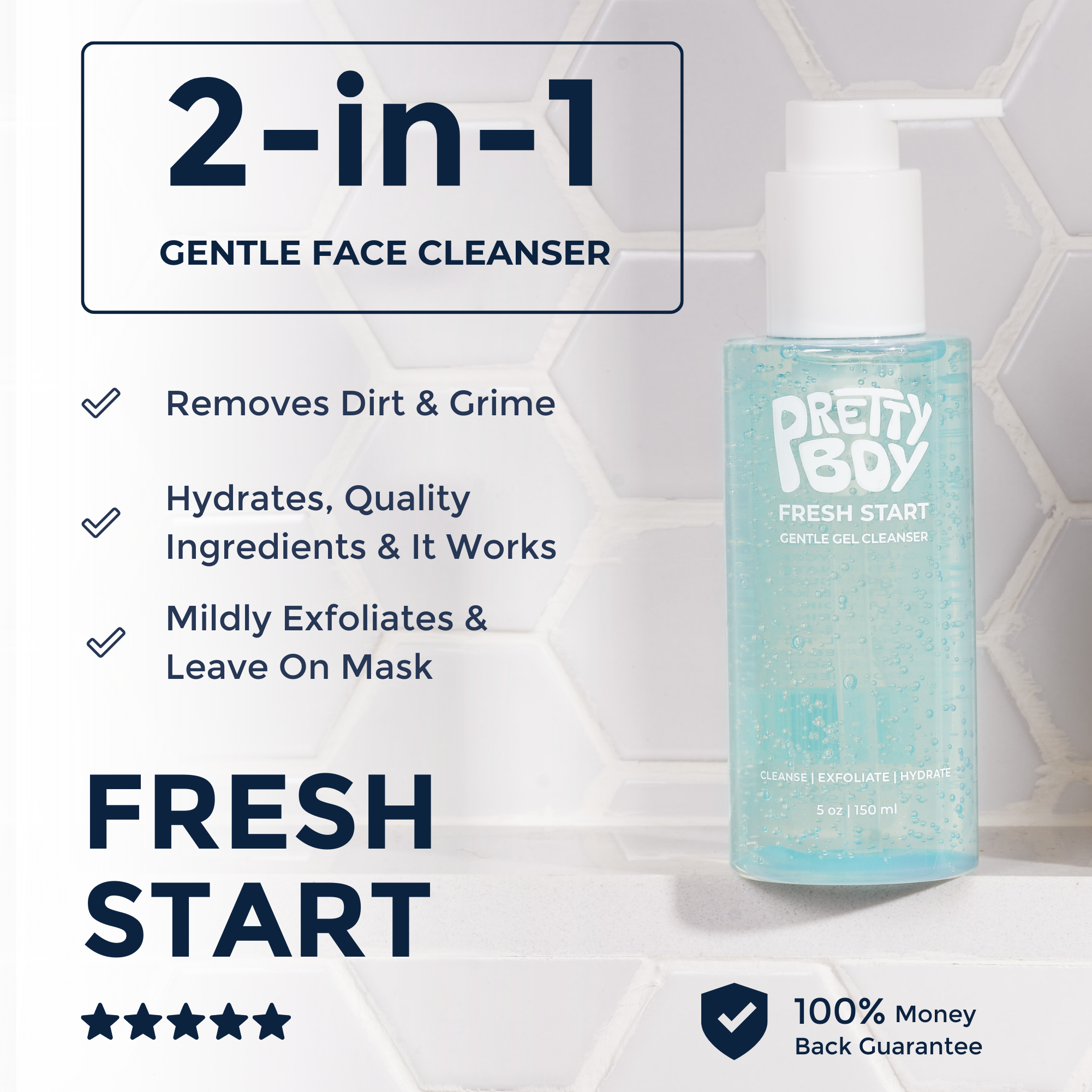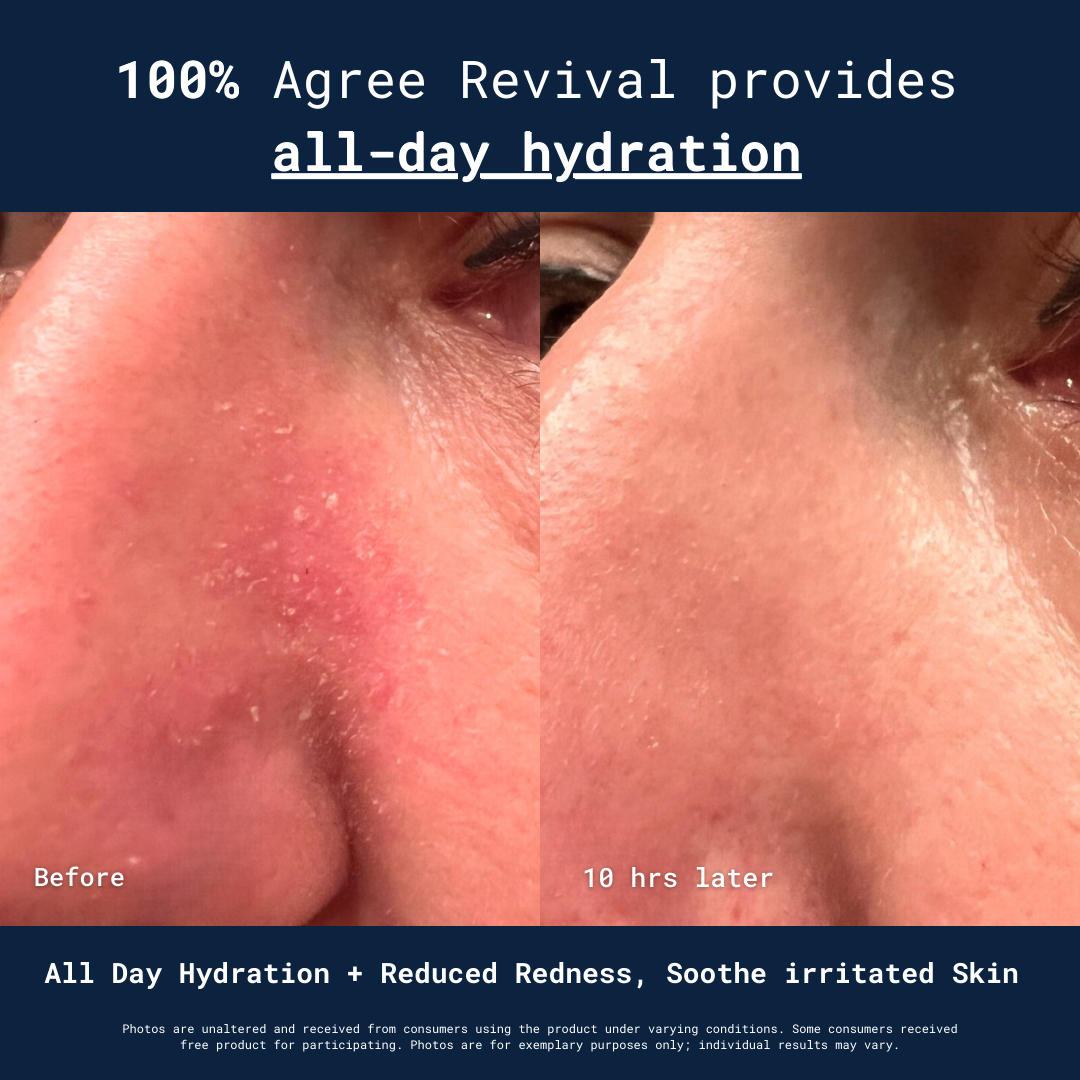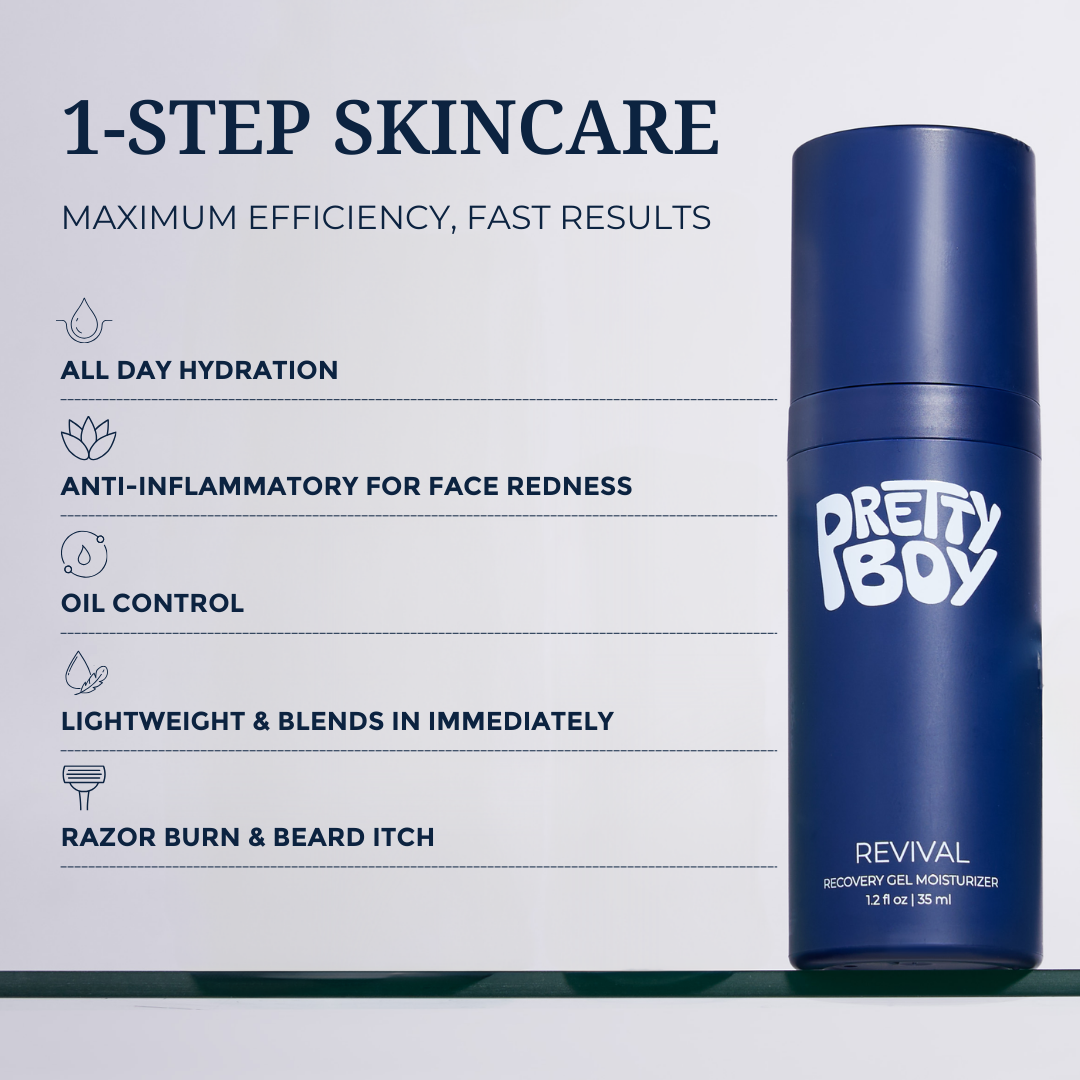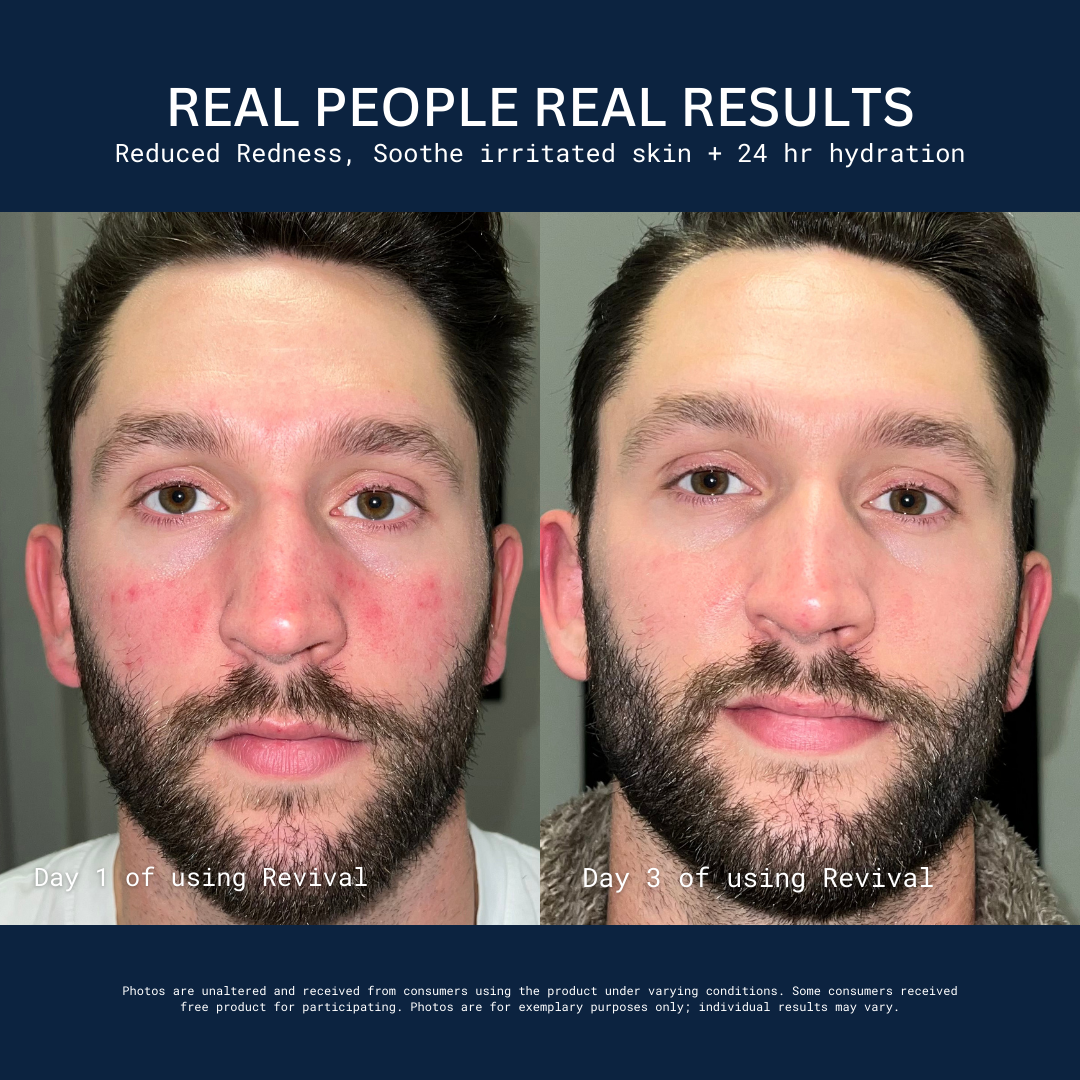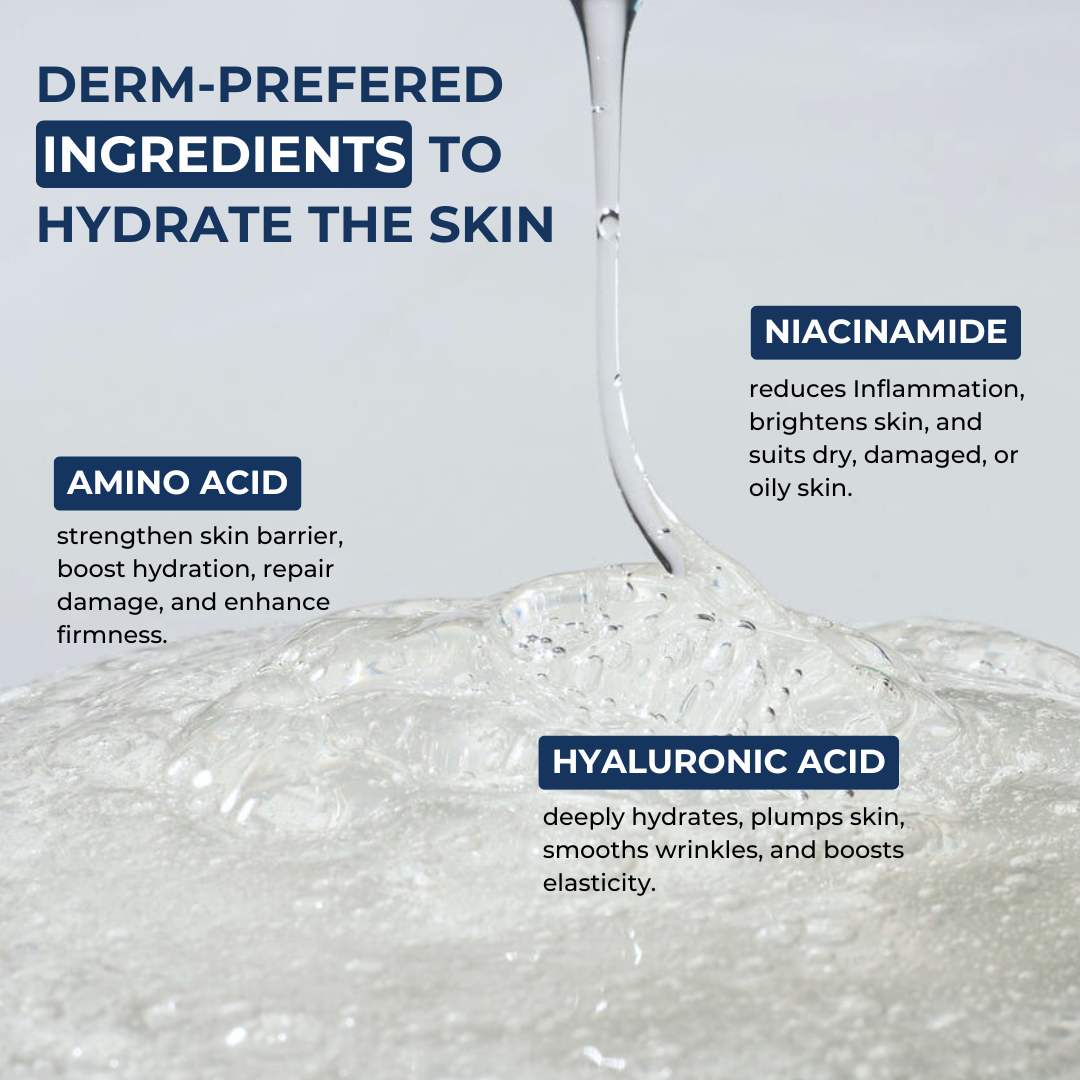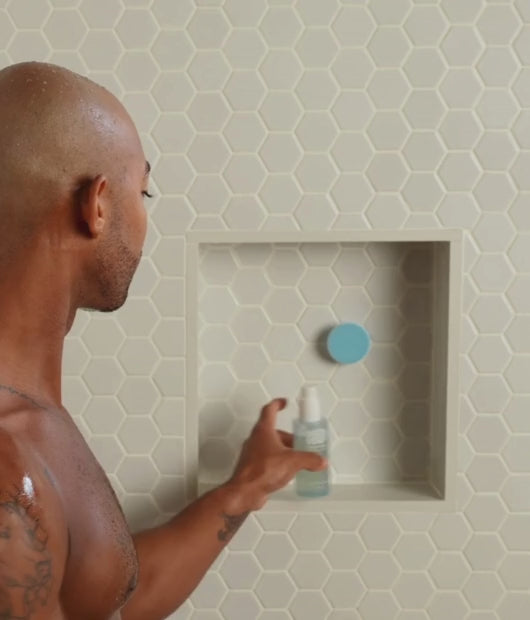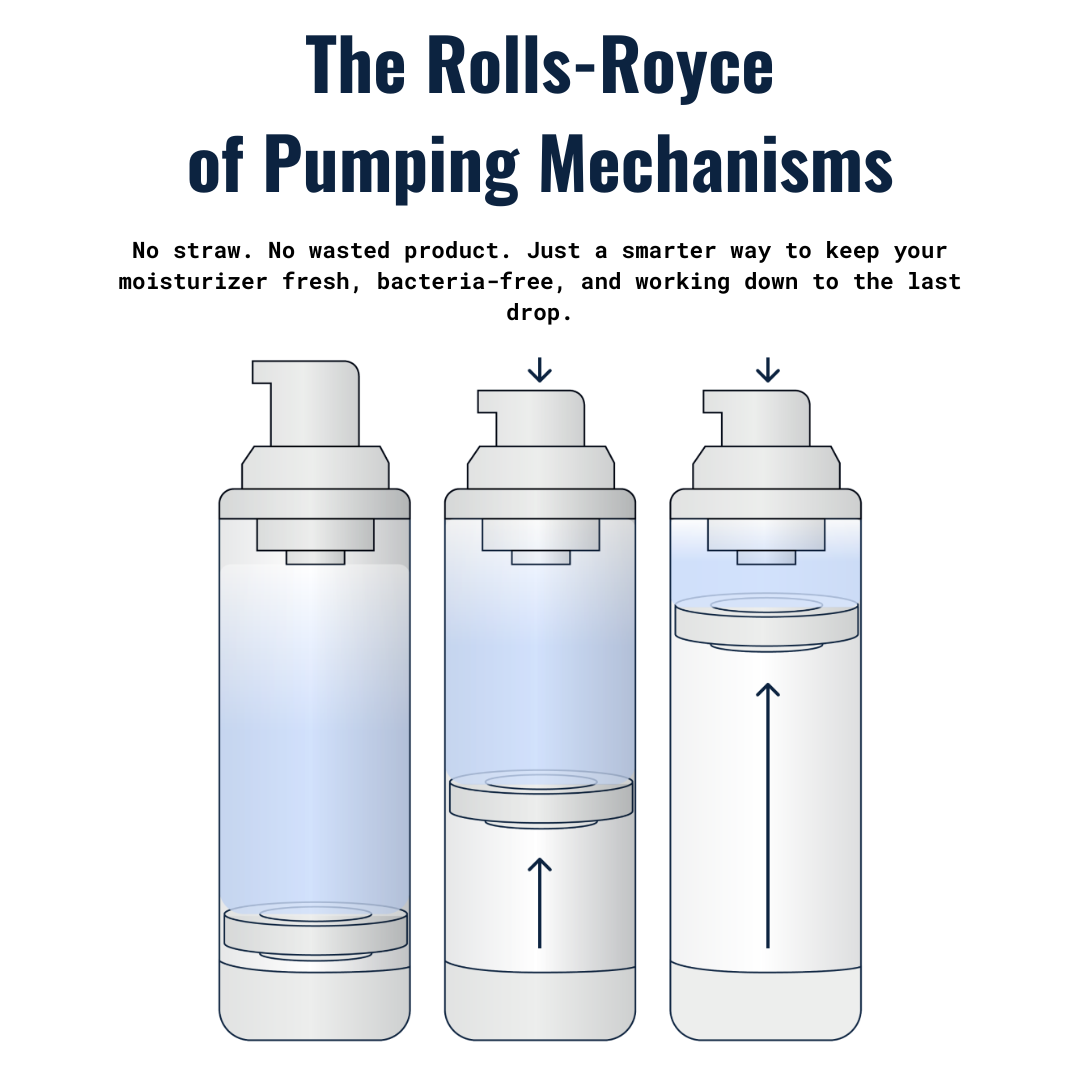Applying aftershave can prevent skin irritation, razor burn, and ingrown hairs after you shave your face. It may also have antiseptic ingredients to disinfect the shaved skin moisturizing agents to prevent dry skin.
You probably saw aftershave on your dad’s counter or in the barbershop as a kid. As a dutiful dude, you followed in his footsteps. And who could blame you? The product is literally named after-shave. It couldn’t be more obvious that you’re supposed to slather it on to channel your inner Don Draper.
Nobody wants to deal with a blood-spotted, red face on the way to work or a date—and most aftershaves products promise to prevent those problems. However, if you take a closer look at what goes into those formulas, you might rethink your post-shave routine.
If you're a regular shaver, you've probably used aftershave at least once in your life. But do you know what it actually does to your skin? In this article, we’ll take a closer look at the ingredients in aftershave, whether it’s really necessary, and a smarter alternative you can incorporate into your skincare routine.
What Does Aftershave Do?
The main purpose of aftershave is to prevent irritation and razor burn caused by shaving your face. Traditional aftershaves also contain astringents like alcohol to disinfect nicks and prevent infections. Lastly, many aftershave products have fragrances to leave you smelling dapper.
Some of the most common ingredients in aftershave are witch hazel, aloe vera, chamomile, shea butter, tea tree oil, and vitamin E. These are meant to soothe the delicate skin on your face, which becomes vulnerable after a close shave.
A post-shave routine is essential, especially if you’re prone to razor bumps, razor burn, acne (Opens in a new window) (Opens in a new window), or dry skin. But despite its intended benefits, aftershave products don’t always work as they're supposed to. Commercial aftershaves often contain harsh ingredients like alcohol that can dry out your skin (Opens in a new window) (Opens in a new window) and cause further irritation. On the other hand, oil-based aftershaves can clog your pores, leading to breakouts.
Accordingly, many dermatologists recommend using a gel-based moisturizer (Opens in a new window) (Opens in a new window) for post-shave care (more on that later).
Do You Need to Use Aftershave?
If you're prone to razor burn, ingrown hairs, or have sensitive skin, applying aftershave can help soothe your skin and prevent irritation. However, if you have dry skin, you should avoid using an alcohol-based aftershave, as it can dry out your skin even more. Instead, opt for a gentle, gel-based moisturizer (Opens in a new window) (Opens in a new window) or an alcohol-free aftershave balm.
Another reason to use aftershave is to disinfect any nicks from your razor. Shaving creates microtears on your face, which can get clogged with dirt and debris if you don’t clean them out. Aftershave helps kill bacteria that would otherwise fester on your face. However, washing your face with a gentle cleanser will accomplish the same thing.
What Happens If You Don’t Use Aftershave?
Using aftershave isn’t essential, but your skin might miss out on some benefits. Here's what could happen:
- Skin Irritation: Without the calming properties of aftershave, it’s possible skin might remain more irritated after shaving. This can result in redness and discomfort, especially if you have sensitive skin.
- Dry Skin: Shaving can strip away natural oils from your skin. Aftershave often contains moisturizing agents to replenish these oils. Without it, your skin might feel drier post-shave.
- Potential Infection: Aftershave with antiseptic properties helps prevent infections in case of nicks or cuts during shaving. Skipping this step might increase the risk of minor wounds getting infected.
- No Fragrance: Aftershave adds a pleasant scent to your grooming routine. Without it, you might miss the opportunity to leave a lingering, fresh fragrance.
Is Aftershave Bad For Your Skin?
Aftershave can damage your skin if it contains harsh ingredients like alcohol, especially if you use it every day. Alcohol-based aftershaves can strip away your skin’s natural oils, disrupt your skin barrier, and break down the collagen that keeps your skin firm and elastic. If you have dry skin, using an alcohol-based aftershave can make your condition worse.
Aftershaves can also irritate your skin if they have synthetic fragrances, especially for guys with sensitive skin.
What Should You Use Instead of Aftershave?
Instead of aftershave, try a lightweight, fragrance-free moisturizer with glycerin, niacinamide and hyaluronic. These ingredients work together to reduce redness and razor bumps, prevent dryness, and even out your complexion.
(Check out this ultimate guide to aftershave alternatives and why you should always moisturize after shaving).
At the bare minimum, you should wash your face with a gentle cleanser and cold water after shaving. This won’t do much to heal your face, but you’ll at least get rid of any bacteria, shave cream, and stubble lingering on your face.
We know guys want a simple skincare routine. That’s why we made Revival (Opens in a new window) (Opens in a new window): the best aftershave alternative out there. Our 6-in-1 formula that consolidates your entire skincare regimen into one bottle: moisturizer, eye cream, after shave, wrinkle cream, and more. Revival is designed for all skin types and you can easily swap it in for your aftershave lotion.
Aftershave vs. Moisturizer: What’s the Difference?
The main difference between aftershave and moisturizer comes down to astringent properties. Old-school aftershaves often contain alcohol or witch hazel, while moisturizers leave those out (for good reason).
Most modern-day aftershaves are glorified moisturizers. You’d be hard-pressed to find any differences between them and moisturizers—aside from the name of the product, of course.
Instead of buying aftershave lotion and moisturizer, you’re better off adopting a high quality moisturizer (Opens in a new window) (Opens in a new window) with soothing, natural ingredients.
Aftershave vs. Cologne: What’s the Difference?
It's important to know that aftershave is not the same thing as cologne. While both products contain fragrance, cologne is used to smell good while aftershave is designed to protect and soothe your skin.
Word to the wise: DO NOT PUT COLOGNE on your neck after you shave unless you want to be screaming like Kevin from Home Alone and inflame your skin even more. It’s best to avoid anything with fragrance.
Stop Falling for Skincare Scams
For centuries, aftershave has been a leading product in the billion-dollar mens grooming space. But if we’re keeping it real, aftershave is one of the biggest skin care SCAMS in history. Modern day aftershaves are nothing more than moisturizers with different branding to catch your attention.
Fellas, you don’t need a cabinet full of lotions, serums, and essential oils to keep your mug fresh. Simplify your skincare routine (and your shaving routine) with Revival. Your bank account and your face will both thank you.





